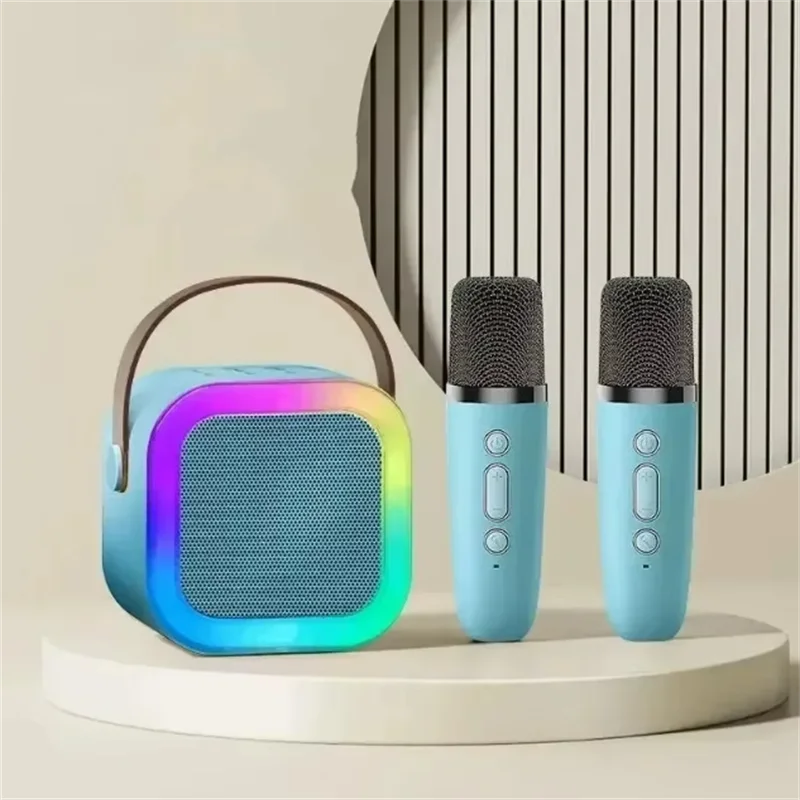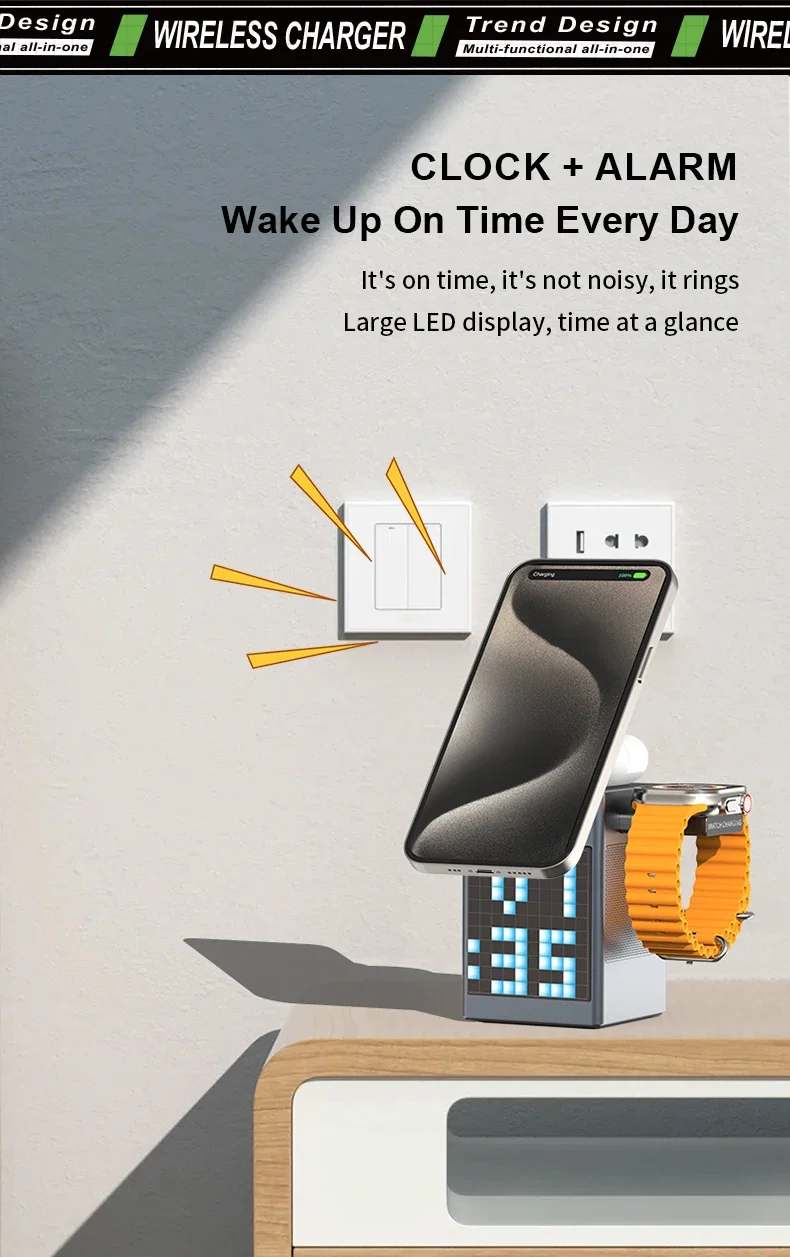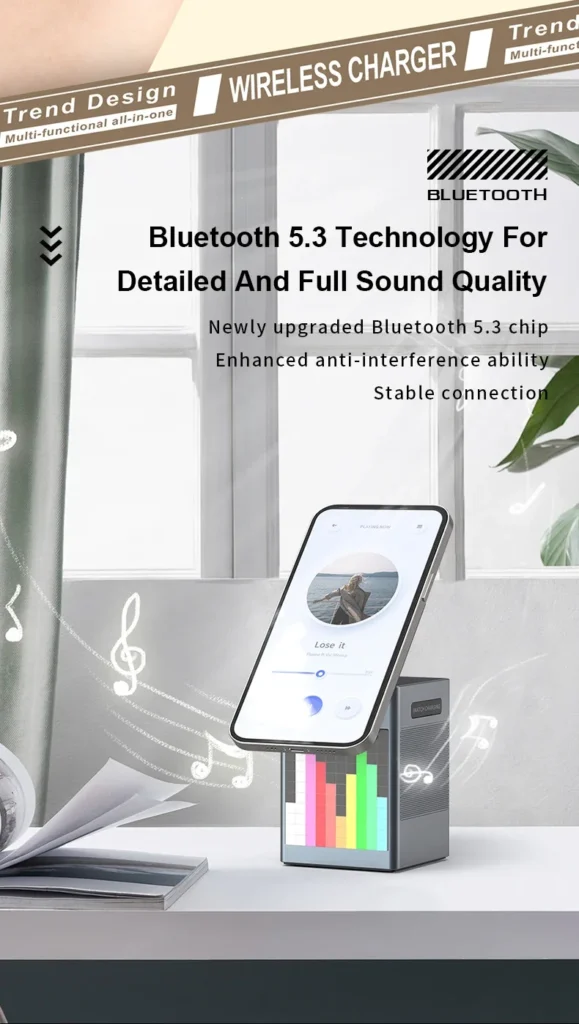
Wireless Chargers for Seamless Charging Solutions: A Convenient Way to Stay Powered Up

In today’s fast-paced world, staying connected is more important than ever, and that means keeping our devices charged and ready to go. Traditional charging methods using cables can often be frustrating—untangling cords, dealing with wear and tear, and the constant need for precise positioning. Fortunately, wireless chargers have entered the scene, offering a seamless, convenient, and efficient way to charge your devices without the hassle of plugging in.

Whether you’re at home, at work, or on the go, wireless charging offers a sleek and innovative solution to power up your devices. In this article, we’ll explore the benefits of wireless chargers, the technology behind them, and how they can simplify your daily life. Plus, we’ll provide a helpful guide to choosing the right wireless charger for your needs.
What is Wireless Charging?
Wireless charging, also known as inductive charging, is a method of charging electronic devices without the need for physical connectors or cables. This technology uses electromagnetic fields to transfer energy between two coils—one in the charging station and one in the device being charged. When the device is placed on the charging pad, energy is transferred from the charger to the device, replenishing its battery.
The main benefit of wireless charging is the convenience it offers. Simply place your phone, smartwatch, or other compatible device on the charging pad, and the charging process begins automatically. No need to fumble around with tangled cables or search for the right charging port.
Benefits of Wireless Charging
There are several reasons why wireless charging has become a popular choice for powering up devices. Let’s take a closer look at the key benefits:
1. Convenience
The primary advantage of wireless charging is its ease of use. With no cords or plugs to deal with, you can quickly place your device on a charging pad, and it starts charging right away. This eliminates the need to find the right cable and plug it in, making it a much more convenient solution, especially when you’re on the go.
2. Reduced Wear and Tear
Cables can wear out over time, especially with constant plugging and unplugging. Wireless chargers eliminate this issue, as they don’t require any physical connections to your device. This can help extend the lifespan of both your phone and the charging cable, reducing the need for frequent replacements.
3. Sleek and Minimalist Design
Wireless chargers tend to have sleek, modern designs that complement the aesthetic of your workspace or home. Many wireless charging pads are compact, lightweight, and easy to store, making them a great addition to any environment. Their minimalist design often adds a touch of elegance to your desk or bedside table.
4. Multi-Device Charging
Many wireless charging stations can charge multiple devices at once, which is a game-changer for households or workplaces with several tech gadgets. For example, you can charge your smartphone, smartwatch, and wireless earbuds simultaneously, without the need for multiple charging cables.
5. Improved Safety
Since wireless chargers use low-voltage power, they tend to be safer compared to traditional chargers, reducing the risk of overheating and short-circuiting. Many chargers are also equipped with built-in safety features such as overcharging protection and temperature control to keep your devices safe while charging.
How Wireless Charging Works
Wireless charging operates using electromagnetic fields and coils, allowing energy to transfer without direct physical contact. Here’s how it works in simple terms:
Inductive Charging Pads: The charging pad has a coil that generates an electromagnetic field when connected to a power source.
Receiver Coil: Your device contains a receiver coil that can detect the electromagnetic field from the charging pad.
Energy Transfer: When you place your device on the pad, the coils align, and the electromagnetic field transfers energy to the receiver coil, which converts the energy into electrical current to charge the device’s battery.
Charging Process: Your device begins charging once the energy transfer starts, and the process continues until your device is fully charged.
Types of Wireless Chargers
Not all wireless chargers are created equal, so it’s important to understand the different types available to find the best one for your needs. Here are a few common types:
1. Qi Wireless Chargers
Qi (pronounced “chee”) is the most widely adopted wireless charging standard. Qi chargers are compatible with a range of devices, including smartphones, smartwatches, and wireless earbuds. They offer a reliable and efficient charging experience for most modern devices.
2. Fast Wireless Chargers
Fast wireless chargers are designed to provide a quicker charge compared to standard wireless chargers. These chargers typically use a higher wattage (such as 10W or 15W) to speed up the charging process. If you’re in a rush and need to charge your device quickly, a fast wireless charger can be a great option.
3. Multi-Device Wireless Charging Stations
As the name suggests, these chargers are designed to charge multiple devices at once. These charging stations often feature several charging pads or spaces for devices like smartphones, smartwatches, wireless earbuds, and other gadgets. If you have multiple devices that need charging, a multi-device station can help keep everything powered up in one place.
4. Portable Wireless Chargers
For those who are constantly on the go, portable wireless chargers are a must-have. These compact and portable power banks allow you to charge your devices wirelessly while you’re traveling. Simply place your device on the charger, and you can enjoy the convenience of wireless charging no matter where you are.
Choosing the Right Wireless Charger
When shopping for a wireless charger, there are a few factors to keep in mind to ensure you’re choosing the right one for your needs:
Compatibility: Ensure the wireless charger is compatible with your device. Most wireless chargers support Qi-enabled devices, but it’s important to check whether your specific phone or gadget works with wireless charging.
Charging Speed: If you’re in a rush, look for a charger that supports fast charging. Many modern smartphones support fast wireless charging, so investing in a charger that offers this feature can save you time.
Design and Size: Consider the design and size of the charger. If you want a sleek and minimalist charger for your desk, choose a compact model. For multiple devices, opt for a charging station with enough ports or pads to accommodate everything.
Safety Features: Look for chargers with built-in safety features such as overcharge protection, temperature control, and short-circuit protection to ensure your devices charge safely.
Conclusion
Wireless charging is revolutionizing the way we power up our devices. With its convenience, efficiency, and sleek design, it offers a hassle-free solution to keep your devices charged and ready to go. Whether you’re at home, in the office, or on the go, wireless chargers make it easier than ever to stay connected. By understanding the different types of chargers and considering your device compatibility, you can find the perfect wireless charger to meet your needs. Say goodbye to tangled cords and enjoy the seamless charging experience wireless technology has to offer.
FAQs
What devices are compatible with wireless charging?
Most modern smartphones, smartwatches, and wireless earbuds support wireless charging, particularly those with Qi compatibility.
How fast do wireless chargers charge devices?
Wireless chargers can charge devices at various speeds, with fast wireless chargers offering quicker charging times (up to 15W) compared to standard chargers (usually 5W).
Can I charge multiple devices at once with a wireless charger?
Yes, multi-device wireless charging stations allow you to charge several devices at once, including smartphones, smartwatches, and earbuds.
Do wireless chargers work with phone cases?
Most wireless chargers work with phone cases, but the case should not be too thick. It’s best to use a case that is no thicker than 3mm for optimal charging performance.
Are wireless chargers safe to use?
Yes, wireless chargers are generally safe. Many come with built-in safety features like overcharge protection, temperature control, and short-circuit prevention to protect both your charger and device.




